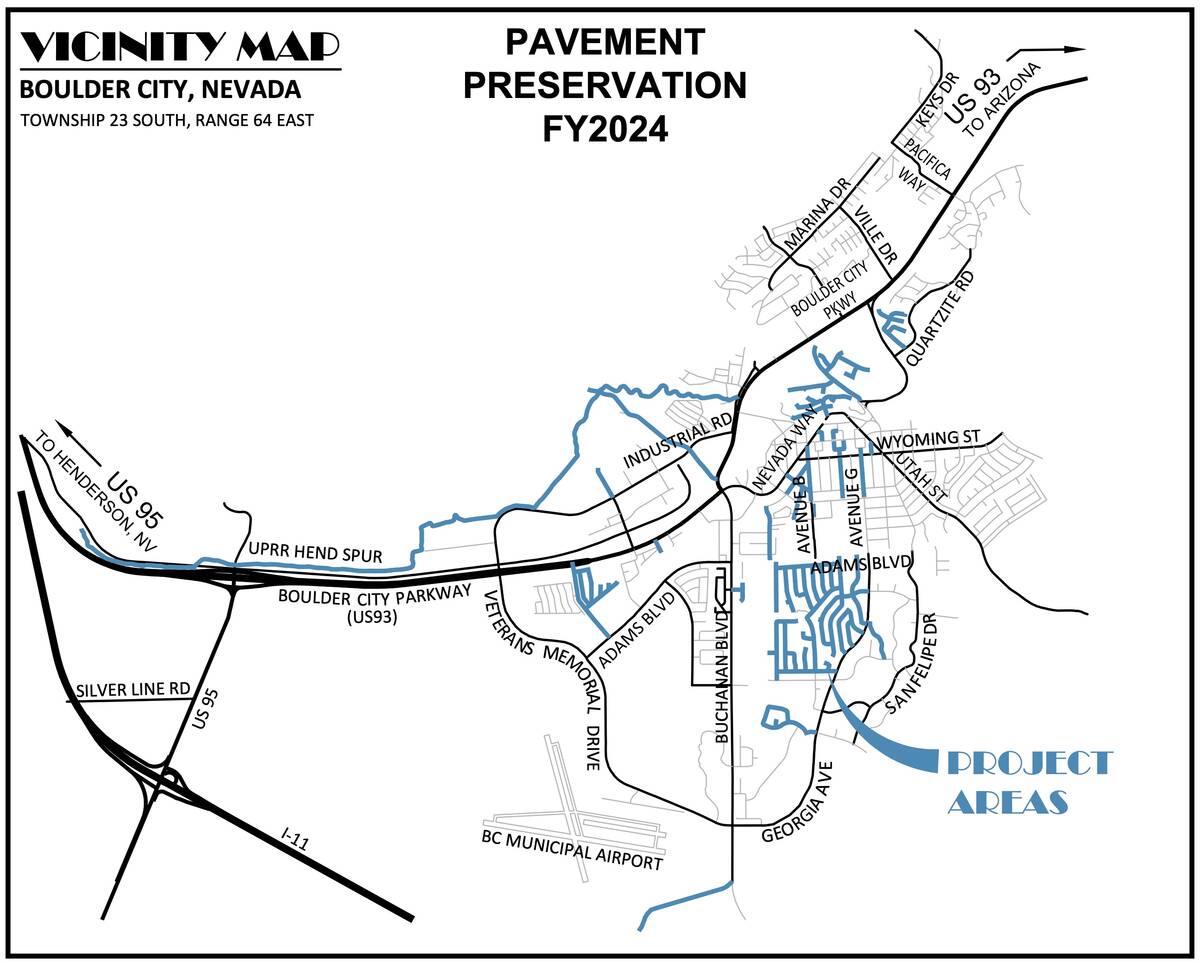City to begin road maintenance projects
In one of his last presentations to the city council before he left Boulder City to pursue another job opportunity, Public Works Director Jamie Curreri was asked by Mayor Joe Hardy where the city was in terms of maintenance.
“It’s not about actual repair,” Curreri said. “It’s about cost of treatment. When we talk about doing the best roads first, it means we prioritize maintenance so that those roads don’t get worse.”
Curreri reported that the city is behind but moving forward. He said that the road preservation projects for fiscal year 2024-25 were about to start and the first step would be crack sealing because that process is more effective when the roads are cooler.
A big contract for that kind of maintenance was approved by the city council in their Aug. 27 meeting as part of the consent agenda.
The source of the funding is actually the Regional Transportation Commission, but the council still has to approve the contract after it is put out to bid.
The council approved a bid by American Pavement Preservation which will result in a $1,518,247.09 contract for the kind of crack sealing work Curreri referenced back in February.
Interestingly, the city put out requests for bids from a large number of companies and only got one bid submitted. American Pavement Preservation got the contract by default as the only company to submit a bid.
According to city staff, it is not yet known exactly when the work will begin.
“The exact start date hasn’t been selected yet,” said City Engineer Jim Keane in an email. “We’re looking at later this month/early next month. “No Parking” signs will be put out on the streets scheduled to be sealed each week. Notices are also placed on the doors of the residents on those streets informing them of the dates and what to expect when their street is sealed.”
No, this does not mean that every street in Boulder City is about to get rebuilt or even resurfaced.
According to a map of the streets set to be affected that was provided by the city, a large part of the work is slated for a stretch of road north of Industrial out to Boulder City Parkway, areas to the north of Wilbur Square and an area east of the Municipal Golf Course between El Camino and Fairway Drive as well as some areas south of Nevada Way in the Historic District.
In what is best described as an “informational presentation,” the city council got an education about the system that the public works department uses to grade roads back in February. That’s grade as in pass or fail, not grade as in “make level.”
The education was provided by Michael R. Dunning, Ph.D. and it focused heavily on what is called PASER — Pavement Surface Evaluation and Rating. In short, it is a way for governments and other agencies involved with roads to inventory their byways and determine an objective way to describe the condition of the pavement in order to set priorities for projects as well as developing maintenance and rehabilitation strategies.
PASER, developed by the University of Wisconsin-Madison Transportation Information Center, uses simple visual observation to rate the condition of a road. Ratings of 9 or 10 indicate all is well. By the time you get to a 7, routine maintenance is advised including crack sealing and minor patching. A rating of 3 or 4 calls for structural changes and a 1 or 2 means reconstruction.
The ratings can point to wildly different economic outcomes. Preservation efforts for roads rated 8 or higher may be as low as 20 cents per square foot. Roads rated at 1 or 2 on the scale could cost as much as $5 per square foot to reconstruct.
Do the math. A one-mile length of 20-foot-wide road could come in at $528,000. (5,280 feet in a mile means 105,600 square feet in a 20-foot-wide road. Multiply that by five.) And according to city staff, the budget BC has in funding, that comes from the Regional Transportation Commission for general road repair, is in the neighborhood of $2.1 million per year. That puts those number into some kind of rough context.
The work slated to begin soon is considered routine maintenance, including crack sealing and slurry re-coating.
















